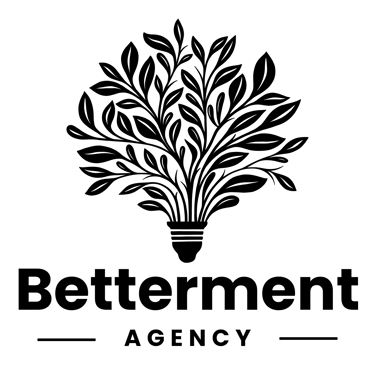The Biggest Challenges to Businesses in 2025 and How Marketing Can Help. Part 3 – Economic Uncertainty and Policy Changes
Economic uncertainty and policy changes pose significant challenges to business. Here's how marketing can help mitigate them.
MARKETING STRATEGYBUSINESS CHALLENGES


SMEs in the UK are facing significant challenges in 2025 due to economic uncertainty and policy changes. These challenges can disrupt operations, impact profitability, and create an unpredictable business environment. However, effective marketing strategies can help businesses mitigate these risks and maintain stability. Here’s a look at the key challenges and how marketing can help SMEs navigate them.
1. Economic Uncertainty
The Challenge
The economic landscape in 2025 remains uncertain, influenced by factors such as global market fluctuations, war, inflation, and potential policy changes. According to the Bank of England’s recent projections, UK inflation is expected to gradually ease, but economic growth remains sluggish (Bank of England, 2024). This uncertainty makes planning and investment decisions more complex for SMEs.
Real-World Example
Although a few years ago now, during the COVID-19 pandemic, many businesses, adapted quickly by shifting their marketing focus to delivery and remote services, ensuring survival in a volatile economy.
Marketing Solutions
Transparent Communication: Keep customers informed about any changes affecting your business via your website, social media, and email newsletters. Transparency builds trust and reassures customers.
Scenario Planning: Develop adaptable marketing strategies for different economic conditions. Be ready to pivot messaging and campaigns based on economic shifts.
Emphasise Stability: Highlight the reliability and consistency of your products/services to assure customers they can count on you, even in uncertain times.
2. Taxation Concerns
The Challenge
Many SMEs are concerned about potential increases in business taxes, such as employer National Insurance Contributions (NICs). While no other confirmed hikes are set for 2025, reports from the Office for Budget Responsibility (OBR) suggest future fiscal pressures could lead to adjustments (OBR, 2024).
Marketing Solutions
Cost-Efficiency Campaigns: Highlight affordable options, discounts, or value-added features that differentiate you from competitors.
Customer Loyalty Programmes: Reward repeat customers with exclusive offers to encourage long-term retention and stable revenue.
3. Regulatory Changes
The Challenge
Changes in employment laws, minimum wage increases, and regulatory policies can raise operational costs. For instance, the UK government recently announced further National Minimum Wage increases to support workers, impacting SME payroll expenses (GOV.UK, 2024).
Real-World Example
When GDPR regulations were introduced in 2018, businesses faced compliance challenges. Companies like Mailchimp successfully used their marketing channels to educate customers on GDPR compliance.
Marketing Solutions
Employee Advocacy: Highlight your commitment to fair wages and worker well-being in your branding, enhancing public perception.
Efficiency and Innovation: Showcase new technologies or methods that help improve productivity and manage costs effectively.
Community Engagement: Partner with local businesses, host events, or support social initiatives to strengthen brand loyalty.
4. Confidence in Government Support
The Challenge
Many SMEs feel that policymakers do not fully address their needs, impacting confidence in government support schemes. This was evident during Brexit, where SMEs faced uncertainty about trade regulations and support structures.
Marketing Solutions
Advocacy and Thought Leadership: Share industry insights via blogs, webinars, or podcasts to position your business as a credible voice in the SME community.
Customer-Centric Approach: Enhance customer experience through personalised service and prompt responses to concerns.
Collaborations and Partnerships: Partner with trade bodies or similar businesses to strengthen influence and visibility.
5. Overall Economic Policies
The Challenge
Government economic policies, such as increased business taxes, continue to shape SME growth and sustainability. Recent reports indicate concerns over long-term SME funding and tax relief reductions (Federation of Small Businesses, 2024).
Marketing Solutions
Market Research and Adaptation: Conduct regular market research to understand economic impacts on customer behaviour and adjust marketing strategies accordingly.
Promote Resilience and Adaptability: Share stories of how your business has successfully overcome past challenges to build consumer confidence.
Flexible Marketing Budgets: Keep your marketing investment adaptable to accommodate sudden economic shifts, ensuring a quick response to changes.
Conclusion
While economic uncertainty and policy changes present significant challenges for SMEs in the South East in 2025, businesses that adopt proactive and adaptable marketing strategies can build resilience and continue to thrive.
By focusing on transparent communication, customer engagement, loyalty programs, advocacy, and thought leadership, SMEs can navigate economic fluctuations with confidence. Staying informed, agile, and customer-focused will be key to ensuring long-term success.
Want to future-proof your business? Start by refining your marketing strategy today, include flexibility and stay ahead of economic shifts! If you need some help with that, then consider using a fractional marketing director.


